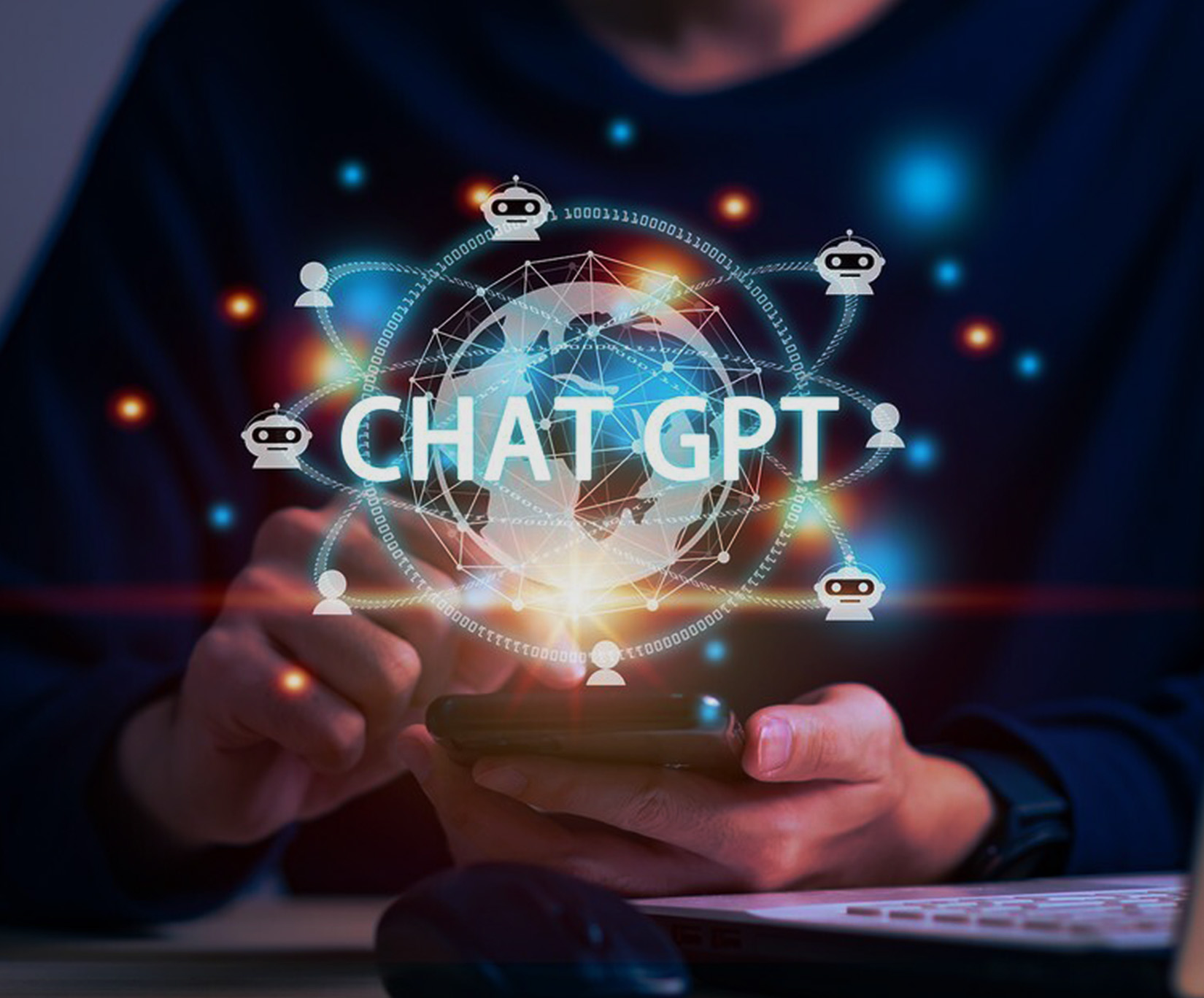Microsoft’s plan to leverage its investment in open AI, the parent company of ChatGPT, is reaping dividends. A testimony to this fact is that ChatGPT is already surfacing on the interface of Microsoft Bing. Ever since its release, interest in ChatGPT has kept up, though it has exploded to new heights since it was released to the public in 2021.
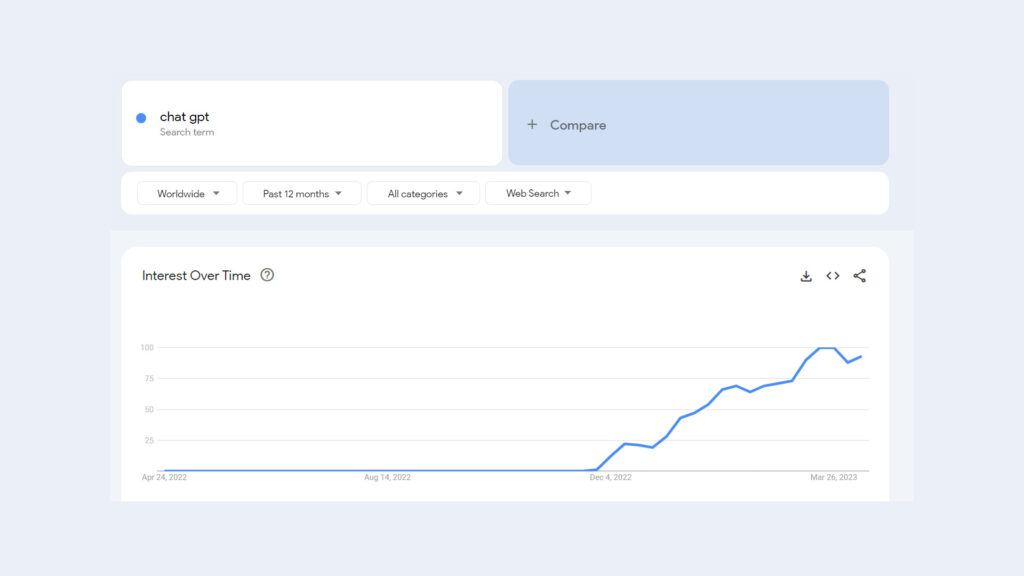
For the SEOs contemplating a future of combing chatbot results with Google and Bing, the main focus is on helpful content, and the way forward is a complicated one. Let us understand in detail about SEO keyword search in ChatGPT.
What can you do with ChatGPT?
At this point, we are tapping into the potential of using machine learning and artificial intelligence in SEO and marketing. ChatGPT is very capable of participating in discussions and answering questions in a manner that replicates a human being. It can write essays, poems, fictional stories, and even ad copy, which is enough to make professional writers a tinge worried.
It can be used to develop content accurately, and in many places, it has been banned due to the fear of cheating. ChatGPT is intelligent enough to write descriptions and debug code in addition to its content intelligence. It is now a complicated technical procedure to be used for coding, but it is realistic to predict that as the learning model expands, it will get simpler.
This can be used in the form of a search assistant, providing answers to questions in a clear and concise format. Users are saved from combining multiple web pages to find answers to the questions. Embracing AI rather than worrying about it is a smart move. There are numerous ways in which you may streamline your task and make redundant or repetitive tasks more efficient.
AI in search: How does it help?
Take into consideration that AI-driven chatbot technology has been in existence for a while. What has changed with the release of ChatGPT is that it has become broadly accessible. Many SEOs are already familiar with keyword research ChatGPT as it has been in existence for a while. What has changed with the release of ChatGPT is that it has become broadly accessible. Many SEOs are already familiar with ChatGPT for keyword research. They would either be familiar with the tool by reading through thousands of articles or, for keyword research, by trying it themselves.
An example of how block and tackle work can help you perform
Query
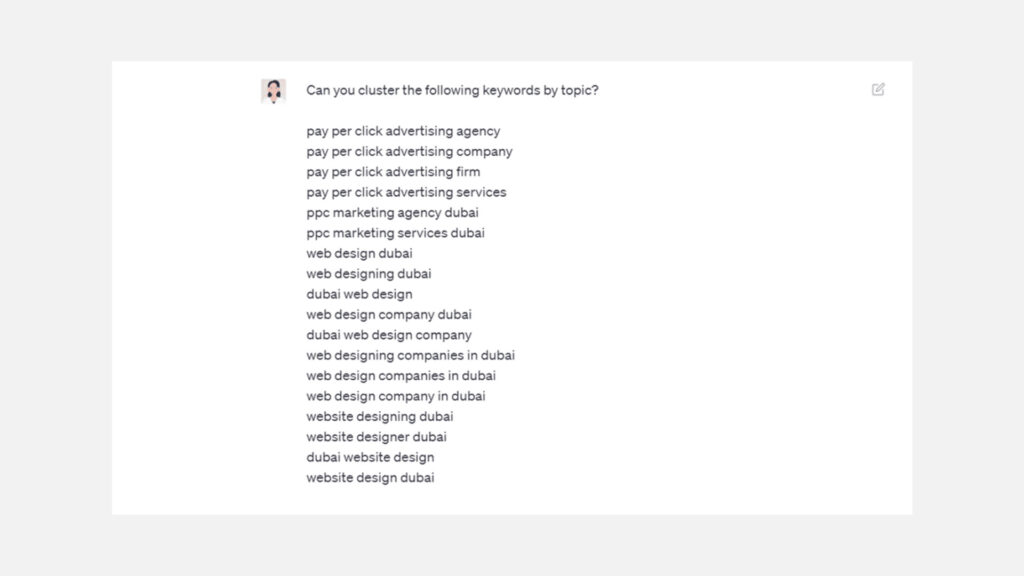
Is it possible to cluster the following keywords by topic?
Initial output
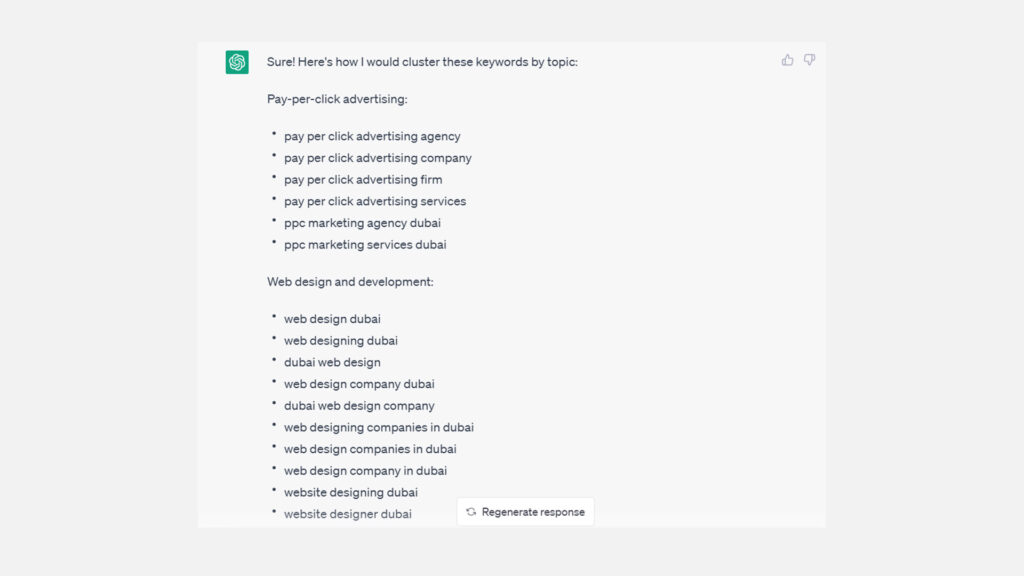
Drill down
- Could you repeat this, add a column for the topic and keyword, and then insert
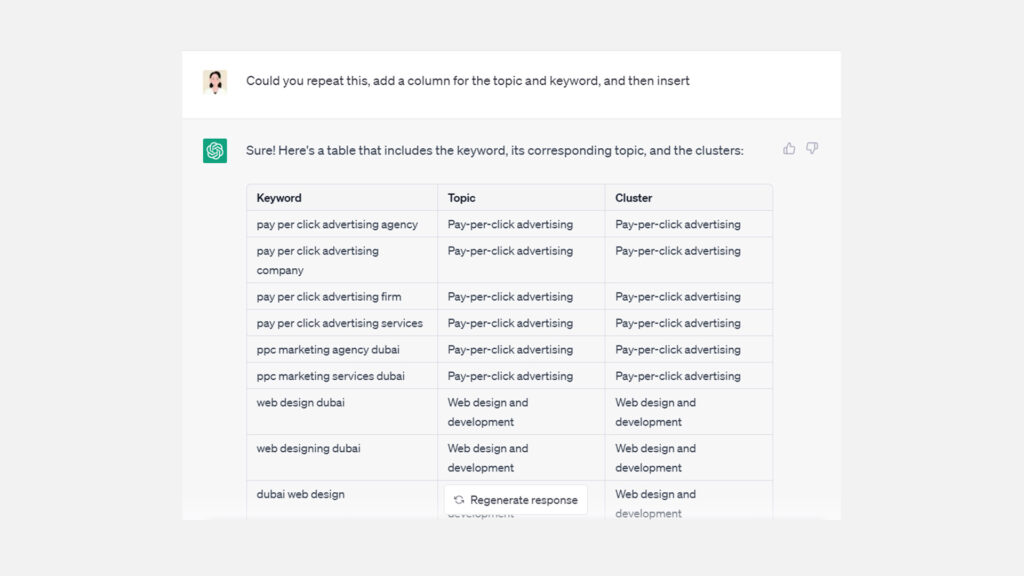
In a couple of queries, we take a look at good-sized keywords, sort them out by topic, and assign user intent—all in seconds. In comparison to manual procedures, this is a wonderful surface-level start that saves SEOs a lot of time. It is a fantastic illustration of how ChatGPT works as a tool.
Keyword Search ChatGPT speeds up the research process. You may ask it to formulate relevant topics quickly, classify the intent of different keyword lists, and have a look at the semantics and classify them.Think of it as how you would do it in Excel. Macros enable you to spend more time in analysis rather than writing the formulas manually. SEO Keyword research in ChatGPT performs a similar function, doing the grunt work and leaving more time for the human layer of nuance.
The threats it could pose
Let us focus our attention on SEO Keyword research in ChatGPT. The primary risk that ChatGPT functionality poses to efficient keyword search is comparable to the risk faced by other tools. Marketers could feel tempted to take a lot of quick cuts. It may be enticing to zero in on a keyword and ask the ChatGPT to find all the related keywords, and it will not stop there. This is not going to work, and it may be something that a lower-priced competitor may offer.
The next step would be a gap analysis, which may indicate what is missing. Figuring out a negative is hard work. It may take deep thought around the concept to realise what is missing. Tapping on to the need that nobody is addressing will enable you to strike gold.
The threat of using SEO keyword research in ChatGPT is falling in love with ease. It is fair to say that the real value of good SEO comes from doing the hard work of nuance and recognizing negative space. The moment AI is able to do that, there are new threats to discuss.
What is not changing at all?
ChatGPT has not posed questions about word count or keyword quality. Still, people may ask whether it should be 300 words or not and how many times the main keyword should be included in it with regularity. ChatGPT is not going to change the way the questions are answered. It is all about delivering value, not counting keywords or words.
They strive to achieve the mindset and psychology of a search. Sometimes they prefer short content, though sometimes they require a book. More so since systems get intelligent at delivering what people need, the human differentiator of assessing the physiological nuance of works is bound to become important.
The process of keyword drafting takes over. First, you need to think about the concept, and then you can draught, thinking about the quality and value of the answer to the question. Then I only think about what keywords are to be applied and redraft the content. This works well when you are presented with information from your product or sales team on customer questions and needs. You may draught the text without them because you already have the topic in mind, making it difficult to see how they fit in naturally.

What may come next?
An educated guess about the immediate future of ChatGPT is that it will be integrated into keyword planning, content, tool, and topic study features. Instead of being a separate window, AI-driven chatbots are going to become more integrated into the SEO planning environment. The results of Microsoft’s and Google’s AI-driven chatbots will be closely scrutinized. At the same time, marketers are expected to keep a close watch on user behavior and trends to get a short-term pulse of the SEO industry.
What is certain is that the utilization and understanding of AI for keyword research will help SEOs train the models that they will use. The more levels of understanding that you have built upon, the better positioned you will be when it comes to using AI to your advantage as it becomes more integrated.
Search marketers are likely to have a definite edge
Just like most innovations, ChatGPT will enable marketers to understand and develop skills around the layer of expertise that will boost the power of tech output. The moment ChatGPT has its say during the keyword research, the psychology and nuance of intent must inform you on what to do with the keywords. This includes finding the gaps that technology is not able to reach.
Related Post
Publications, Insights & News from GTECH


